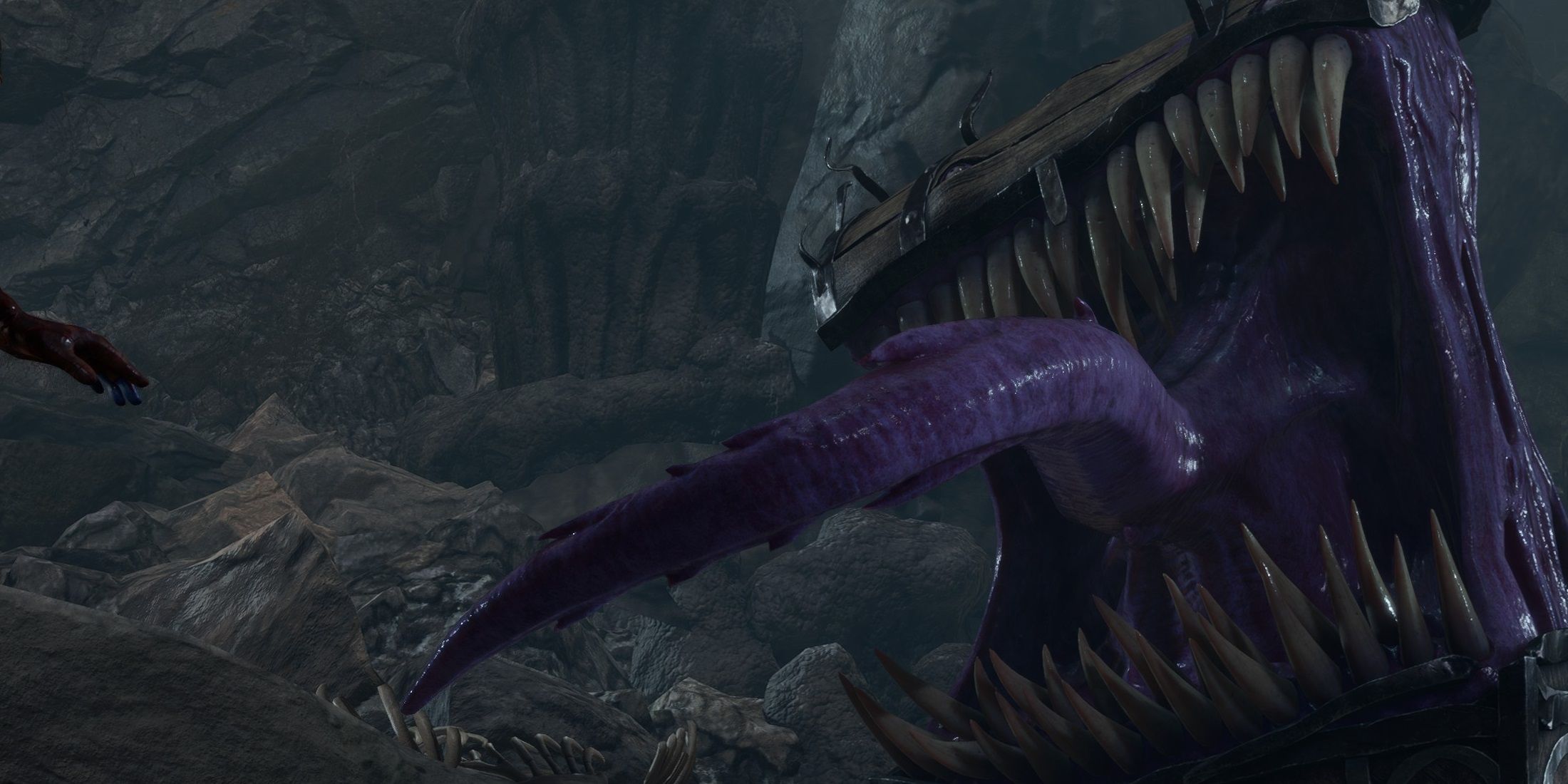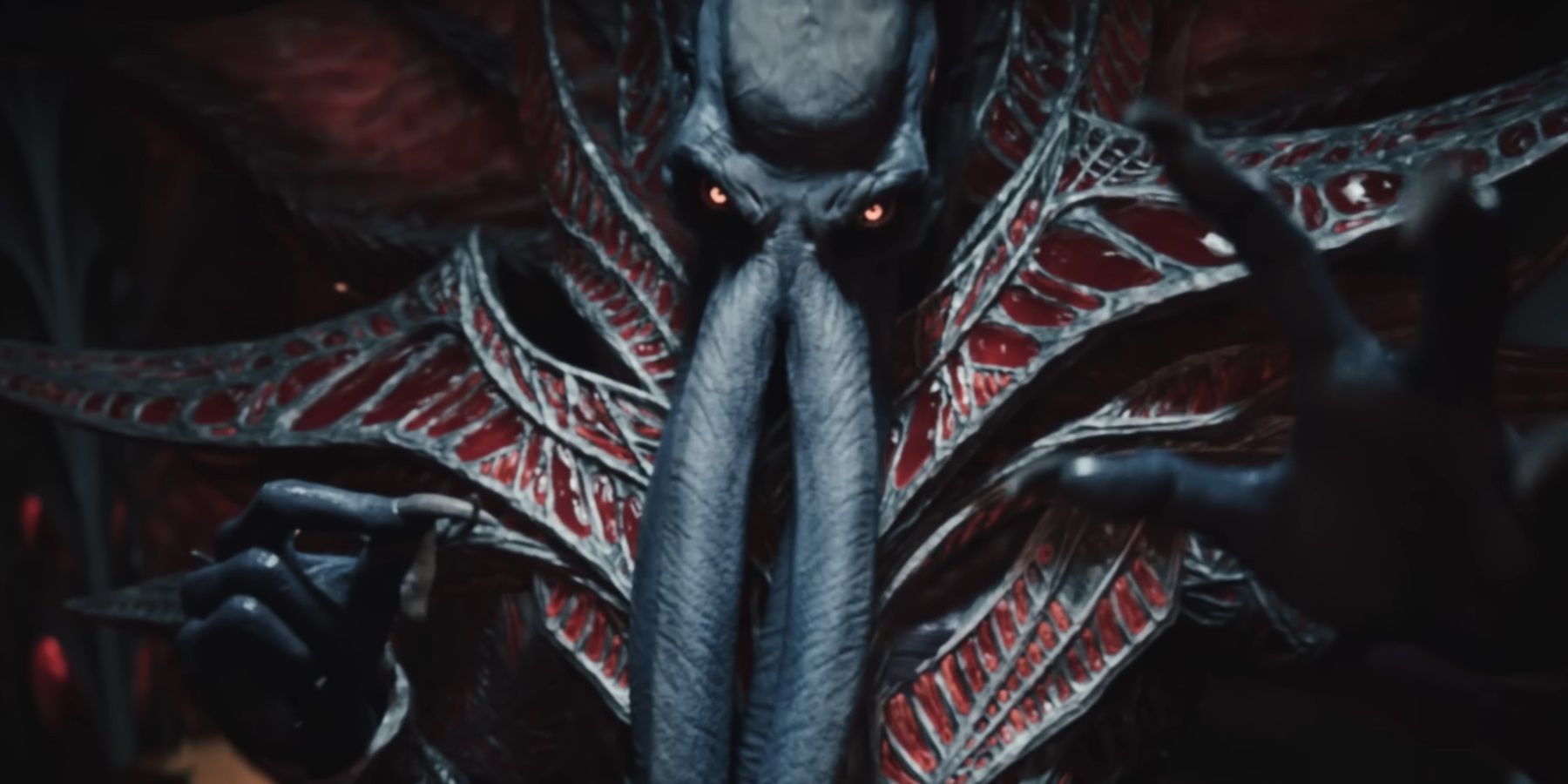Highlights
- Baldur's Gate 3 has reignited interest in D&D with its mind flayer focus, prompting calls for a new psionic class in the tabletop game.
- The illithid powers showcased in the game could serve as a solid foundation for a psionic class with unique powers and a more streamlined system.
- Despite the Mystic class not making it past playtesting, the 2024 rules update presents an opportunity for D&D to embrace psionics inspired by Baldur's Gate 3.
The much-acclaimed Baldur's Gate 3 has boosted the popularity of D&D to new heights, something especially useful after the TTRPG title underwent a tough 2023. With how much potential the video game has to impact its pen-and-paper predecessor, one monster highlighted by Baldur's Gate 3 ought to inspire the revival of a forgotten D&D class.
Baldur's Gate 3 focuses on mind flayers, a tentacle-bearded species of brain-eating alien. In addition to their diet, thralls, and sinister hive-mind society, these creatures are known for their powerful psionic abilities. Psionic powers in D&D aren't quite magic but often take the form of magic-like abilities (such as telekinesis or telepathy) created by pure brainpower. A mind flayer's psionic abilities include levitation, stunning blasts of psychic energy, and the power to dominate the mind of another creature.

Baldur's Gate 3: Most Underrated Classes, Ranked
Each class in Baldur's Gate 3 is unique in one way or another. However, some great classes are often overlooked in favor of other, more obvious ones.
Baldur's Gate 3 Should Inspire A Revival Of D&D's Mystic
Now that Baldur's Gate 3 has shown off mind flayers and their abilities, as well as providing options for players to gain their own illithid powers, it would be a great move for Wizards of the Coast to inject psionics back into D&D. While there are some character options with psionic flavor (such as the warlock's Great Old One subclass, available in D&D 5e and Baldur's Gate 3), D&D 5e lacks a full psionic class.
The class that would have fulfilled this role, the Mystic, never left the playtest phase thanks to its convoluted design. However, with the 2024 rules update on the horizon, there's no better time for D&D to take the groundwork of Baldur's Gate 3's psionics and run with them.
The Mystic And Its Origins
The Mystic has its origins in D&D's Unearthed Arcana, a set of playtest material released by WOTC for community feedback. The 2017 class was one of the few additions to 5e's classes, with only the Artificer becoming an official new class after the 2014 set. Focusing on psionic abilities, the Mystic is an incredibly complex class with dozens of moving parts. Its Unearthed Arcana PDF has a whopping 28 pages, rife with choices within choices and a confusing 'Psi Point' system to track.
Mystic is an incredibly complex class with dozens of moving parts!
Though some continue to play the class, it never made its way into an official WOTC book. In fact, in a 2020 Unearthed Arcana release, it stated that it would officially end development for D&D 5e's Mystic. Despite this, the concept of a class based around psionic powers is incredibly popular, with the third-party market for D&D providing many options. MCDM, a major third-party publisher for 5e, released the Talent class, which approaches the psionics concept from a pulp sci-fi standpoint (more akin to Jean Grey's powers than cosmic horror).

LEGO's Dungeons and Dragons Sets Open the Door for a Great Adaptation
LEGO's collaboration with Dungeons and Dragons opens the door for an exciting opportunity that could use an unlikely source of inspiration.
Baldur's Gate 3 Makes A Great Case For A Psionic Class
With popular subclasses like Great Old One and Aberrant Mind (a sorcerer subclass not featured in Baldur's Gate 3), a full-on psionic class might be better served with a more eldritch flavor. Luckily, Baldur's Gate 3 provides a framework for this through illithid powers. By consuming mind-flayer parasites, players can gain small psionic abilities encompassing both passive traits and full actions.
These powers function similarly to the warlock's Eldritch Invocations, albeit with more of a risk-reward factor (such as Psionic Overload forcing the player to take damage in exchange for more potent attacks). Given the warlock's own popularity, Baldur's Gate 3's system of illithid powers could serve as a great foundation for a psionic class. It would still need a dash of extra complexity, given how D&D wants to draw a line between spellcasting and psionics, but with fewer major choices and a more streamlined system of powers, a new psionic class is more than possible.



